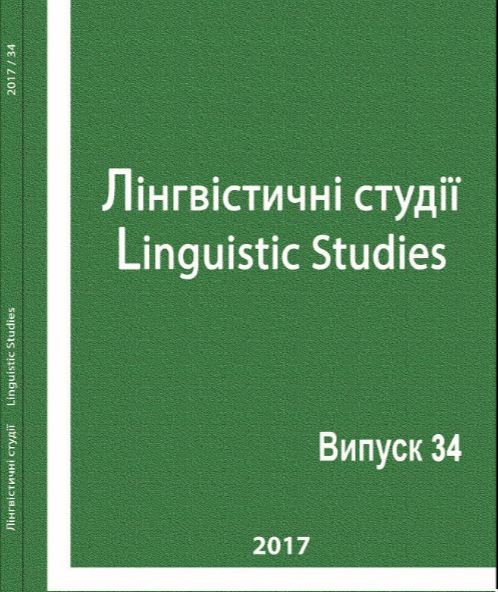Concept Scarcity and Its Historical Development in English.
Keywords:
concept, inner form of the word, etymological analysis, etymon, scarcity, semantic propertyAbstract
The content of the concept SCARCITY is stored in the verbal form and manifested by its name – the polysemous lexeme scarcity (n.) formed by the nominal Latinate suffix -ity from scarce (adj.) and the etymon – PIE stem of the verb kerp- ('to gather harvest'). The semantic structure of the name of the concept went through nine stages of evolution from 1340 up to present time motivated by the inner form 'state of being limited in amount' and it is based on the categorical semantic property 'a state/condition/degree of being scarce' which together with other meanings profiled within the domains ECONOMICS and COMMERCE, MATHEMATICS, POVERTY, MEANNESS take part in the formation of the stereotypical perception of the concept SCARCITY in the English worldview defined by its name.References
Baayen, Harald. (1992). ―Quantitative aspects of morphological productivity‖. Yearbook of Morphology. Ed by G. Booij and J. van Marle. Dordrecht: Kluwer, 1991. 109–149. Print.
Baayen, Harald. ―Corpus Linguistics in Morphology. Morphological Productivity‖. Corpus Linguistics. An International Handbook. Vol. 2. Ed. by Anke Lüdeling and Merja Kytö. Berlin; New York: De Gruyter, 2009. 899–919. Print.
Geeraerts, Dirk and Cuyckens, Hubert. ―Introducing Cognitive Linguistics‖. The Oxford Handbook of Cognitive Linguistics. : Oxford University Press, 2010. 3–22. Print.
Leitchik, Vladimir and Shelov, Sergej. ―Some basic concepts of terminology: traditions and innovations‖. Terminology science and research: Journal of the International Institute for Terminology Research (IITF). 14 (2003): 86-101. Print.
Makovskij, Mark. Istoriko-jetimologicheskij Slovar' Sovremennogo Anglijskogo Jazyka. Slovo v Zerkale Chelovecheskoj Kul'tury (Historical and Etymological Dictionary of Modern English Language: the Word in the Mirror of Human Culture). – Moskva: Dialog, 1999. Print.
Milgate, Murray. ―Goods and commodities‖. The New Palgrave Dictionary of Economics Online. Palgrave Macmillan, 2008. Web. 22 Aug. 2017. Plag, Ingo. ―Word-formation in English‖. Cambridge Textbooks in Linguistics. Ed. by Robert S. Anderson. Cambridge: Cambridge University Press, 2002. 1–250. Web. 22 Aug.2017. Potebnja, Aleksandr. Mysl' i jazyk (Language and Thought). Har'kov: Tip. Mirnyj trud, 1913. Print.
Shevchenko, Irina. ―Jevoljucionnye mehanizmy kognitivnoj semantiki (Evolutional mechanisms of cognitive semantics)‖. Kognicija, kommunikacija, diskurs (Cognition, Communication, Discourse) 13 (2016): 131–141. Print.


